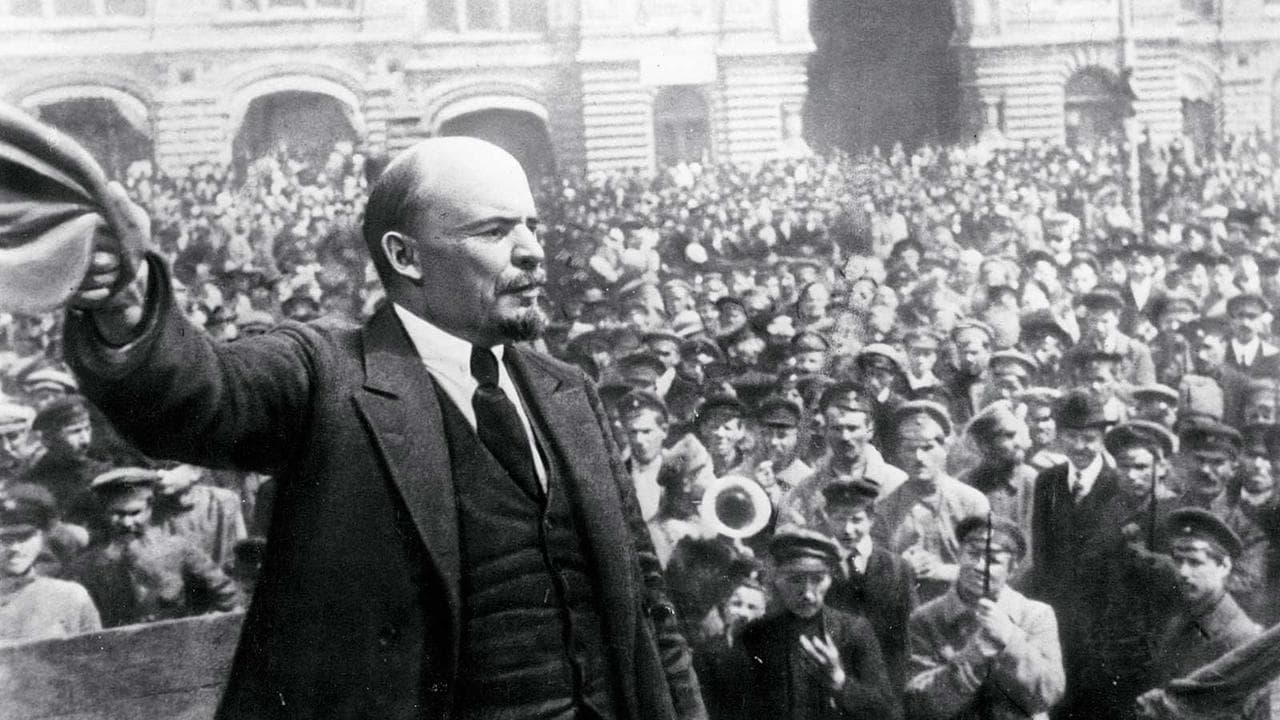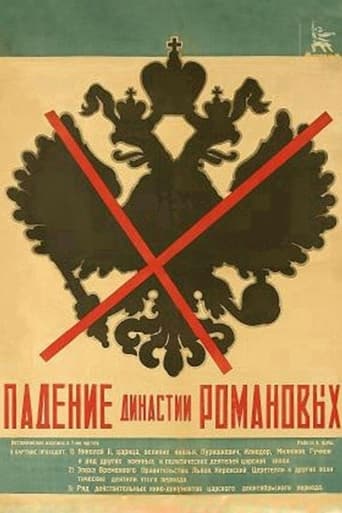

It is not only a funny movie, but it allows a great amount of joy for anyone who watches it.
... View MoreThe first must-see film of the year.
... View MoreThe thing I enjoyed most about the film is the fact that it doesn't shy away from being a super-sized-cliche;
... View MoreThe film's masterful storytelling did its job. The message was clear. No need to overdo.
... View MoreThe fall of the Romanov Dynasty (1927), directed by Esfir Shub, is a documentary narrative constructed entirely of newsreel footage before the revolution. Her use of captions makes the film a lot easier for the audience to fully grasp the various scenes, which are presented to us in a sort of chronological order. At the beginning she provides us with a fairly obvious juxtaposition of the lives of the Imperial family and the poor working class. Depicting the gap between the lower class and the upper class, which only seems to be widening. A scene that seemed to especially show this was when nobles were having a tea party and once they were finished the workers would come in and clean up. There's a hint of bitter satire that can be felt throughout the entire film as an impending revolution is approaching, which seems to be unavoidable. This war that didn't seem to be supported by the general public and only benefited the Imperial family and his loyal subjects, which consisted of senators, civil servants, and the head of press. Had loss all support after the mass destruction leading to a revolt all because of the neglect from the Tsar and his ministers.
... View MoreI knew it was coming shortly the answer I couldn't bear to see. The Bolsheviks featured in history. To the victors go the glory, even in the face of war and death. Well that's the ending, which comes slinking in to corrupt what would have been a legitimate effort to provide a synopsis of the preceding 20 years accompanied by both reasonably relevant and appropriate visual material. But don't suppose there was any nuance, oh no, the presentation of events both followed a linear progression and were manufactured to fit a revolutionary mindset - though their depiction under the eye of the camera leaves no room for bias. By the first half of the film it is sickening to watch as ever more of the officer corps and nobility flood the screen in their gilded uniforms of either white or black. While this effect is produced partly by sheer repetition (I could not help but close my eyes at one point and instead focus on Bach's Praeludium I which was playing in the background), all the manicured and clean faces of the gentlemen and ladies are sharply contrasted with the dirty peasants and factory workers working in the fields, plants, mines, and quarries while living in hovels. There is no denying that the divide between the upper classes and the common man is stark. The confidence that inspires in the ability and judgment of the Tsar to order the mass mobilization of the "cannon fodder" is correspondingly poor. The reality of war, through the bitterness of winter, featuring the explosions of artillery, the manufacturing of deadly weaponry, and the consequent death of millions, leads to the obvious conclusion: War must stop, and the Tsar must fall.And so it was that in about 5 minutes of film the storming of the palace and abdication of Nicholas II was completed, power transferred, and regime undone. The Fall of the Romanov Dynasty, title of the film, is complete. We could have ended there, the next months of the story left to another documentary, but Esfir Shub decided to press on just as the war did even after February's revolution. The people are mustered and Lenin is seen, figurehead, all chanting "Bread, Peace, Freedom," the clarion call of the Bolsheviks.
... View MoreLet's get this straight: this is pretty much straight line Marxist history as of 1928, to which I say "So what?" It takes decades to sort out the passions of the events and get a reasonable take on them and even then passions will continue to inflame matters. Consider the discussions of the American Civil War as of 1960. I don't believe that the First World War was started to maximize profits, but as a sort of series of events that would be a comedy of errors if they weren't so horrid.What we do have here, and what should be applauded, is some great historical clips of Russia from before the First World War -- and most of the pre-War film studios were so devastated that many students of cinema aren't even aware there was an advanced Russian film industry before the Great War -- which are beautifully edited. Esfir Shub was one of the people surrounding Dziga Vertov, who was a practicing and practical director while the Academicians were writing texts to demonstrate to the lumpen-proletariat why they should appreciate their editing. As a result, this becomes a well-illustrated history text which tells its story in a comprehensible and engaging fashion. It is the model for how such documentaries would be done for decades, and still are.
... View MoreFascinating collection of footage from the years 1913-17 focusing on the Russian Revolution. With an introduction by a Russian historian and cultural expert, it exposed a number of myths about the revolution and in particular, the Bolsheviks.With this gentleman providing a commentary over the footage that's happening and explaining the propaganda behind not only this film, but the three films that I'd seen by Eisentein, presenting them in a completely different light. Filmwise it wasn't anything special, however the informed commentary was riveting and helps you to understand a bit more about what actually happened, even if it only touches the surface.Watched in conjunction with Eisenstein's October 1917, Strike and Battleship Potemkin, these are essential viewing.
... View More